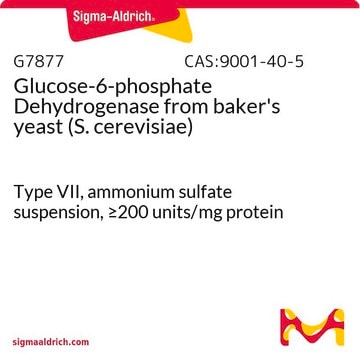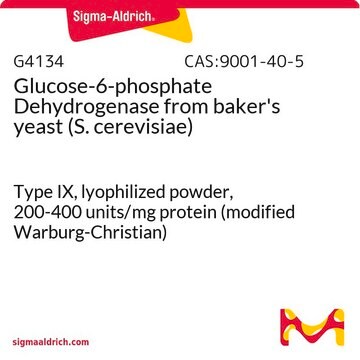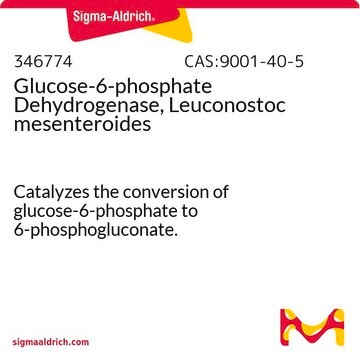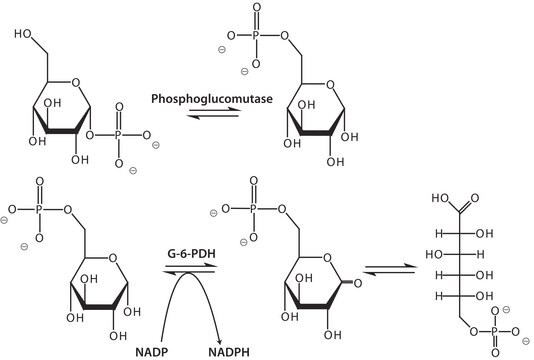G6378
Glucose-6-phosphate Dehydrogenase from baker′s yeast (S. cerevisiae)
Type XV, lyophilized powder, 200-400 units/mg protein (modified Warburg-Christian)
Synonym(s):
G-6-P-DH, Zwischenferment
About This Item
Recommended Products
type
Type XV
Quality Level
form
lyophilized powder
specific activity
200-400 units/mg protein (modified Warburg-Christian)
mol wt
128 kDa
purified by
crystallization
application(s)
diagnostic assay manufacturing
shipped in
dry ice
storage temp.
−20°C
Looking for similar products? Visit Product Comparison Guide
Related Categories
General description
Application
Biochem/physiol Actions
Unit Definition
Physical form
Preparation Note
Signal Word
Danger
Hazard Statements
Precautionary Statements
Hazard Classifications
Resp. Sens. 1
Storage Class Code
11 - Combustible Solids
WGK
WGK 3
Flash Point(F)
Not applicable
Flash Point(C)
Not applicable
Personal Protective Equipment
Regulatory Listings
Regulatory Listings are mainly provided for chemical products. Only limited information can be provided here for non-chemical products. No entry means none of the components are listed. It is the user’s obligation to ensure the safe and legal use of the product.
JAN Code
G6378-250UN-PW:
G6378-100UN-PW:
G6378-BULK:
G6378-500UN:
G6378-PH:
G6378-5KU:
G6378PROC:
G6378-500UN-PW:
G6378-250UN:
G6378-1KU:
G6378-VAR:
G6378-2KU:
G6378-100UN:
Certificates of Analysis (COA)
Search for Certificates of Analysis (COA) by entering the products Lot/Batch Number. Lot and Batch Numbers can be found on a product’s label following the words ‘Lot’ or ‘Batch’.
Already Own This Product?
Find documentation for the products that you have recently purchased in the Document Library.
Customers Also Viewed
Protocols
To measure glucose-6-phosphate dehydrogenase activity, beta-nicotinamide adenine dinucleotide phosphate is used in a spectrophotometric rate determination assay at 340 nm.
Our team of scientists has experience in all areas of research including Life Science, Material Science, Chemical Synthesis, Chromatography, Analytical and many others.
Contact Technical Service








